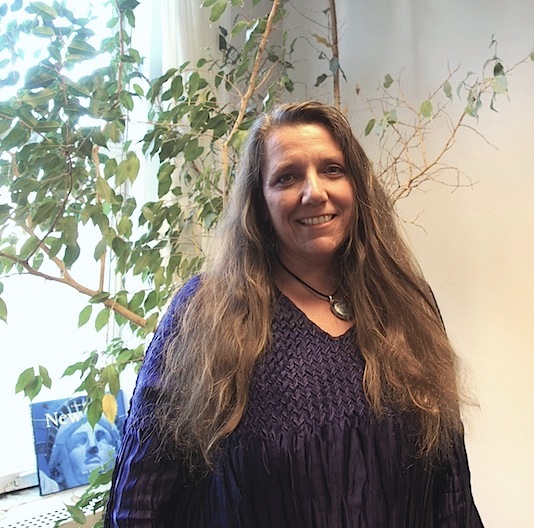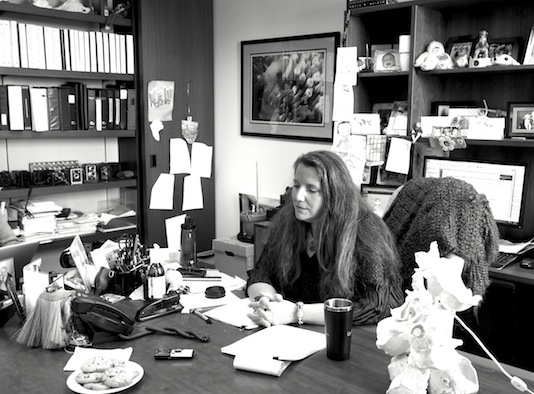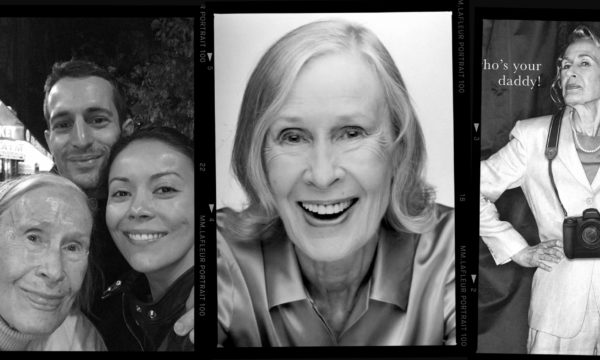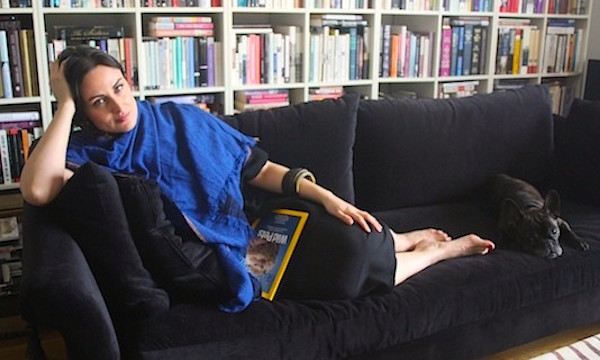A Chat with Ampersand Woman and M.M. Mentor Lori Hoberman
March 07, 2014 | Filed in: Woman of the Week

In the spirit of Mentor/Mentee month at MM.LaFleur, this week’s Ampersand Woman is the mentor of our very own CEO.
Lori Hoberman is a partner and the chair of the Emerging Companies / Venture Capital practice at law firm Chadbourne & Parke in NYC. She’s also one of the reasons that MM.LaFleur has come so far—she coached Sarah through the process of negotiating her first official deal and has been an indispensable adviser ever since.
Below, she chats with us about mentoring, deal-making, and the much-debated notion of “balance.”
* * *
First things first. How did you end up going into law?
I was too tall to be a jockey! I grew up in Queens and Long Beach, and I always loved horseback riding. But by third or fourth grade, I could see that being a jockey wasn’t in the cards. I thought about going into medicine for a while, but the law sounded like the right thing to do. During college and law school, I spent my summers working as a camp arts & crafts teacher—I loved that job! Even between my first and second year of law school—when you’re supposed to get a “real” job—I just couldn’t give it up. When we went back to school, I was tanner and much more relaxed than my classmates. I didn’t have that pale-fluorescent glow that everyone else did!
Who were your mentors and how did they help you along the way?
I am fortunate to have had several terrific mentors during my career. For some reason, they were always men. I have never had a woman mentor. When I was younger, my mentors taught me initially how to be a lawyer, and then how to develop business to succeed as a lawyer. When I was more senior and involved in management at my last firm, my mentor was a general guiding force. If you are lucky, you’ll have mentors throughout your whole career.

How did you find these mentors?
My mentors were colleagues that I liked and trusted. They all became my friends, and I felt that they cared about my well-being and success. Navigating a career can be lonely, and I was definitely fortunate to have my mentors as I was coming up. My last two mentors were special—they really had my back, which was something I needed at that time to continue growing. At each stage of your career, you need different things from a mentor.
How did you go from being a mentee to a mentor?
I think you become a mentor as you have more experience in life. It doesn’t have to be global experience—it can be in a little niche. But it happens naturally; it’s a mutual selection process. It starts with some type of relationship that makes you feel good. I think of it as, “You are someone I would like to have lunch with and hang out with.” I try to mentor the younger women associates at my firm—to teach them not just how to work, but how to handle themselves in a business setting. As they get more senior, they need to know how to do that in order to succeed.
What are some things you try to instill in those you mentor?
I have two career mantras. The first is that you have to be passionate about yourself and believe in yourself. I don’t necessarily like the idea of “selling” yourself, but being passionate and confident is how you get others to believe in you. The second is that it’s just business… no matter what, it’s not personal. If you can realize that a heated negotiation or criticism from a colleague is simply business and not an attack on you personally, you will be able to move past it much quicker.
The benefits of having a mentor are quite obvious. What are the benefits of being a mentor?
I am so proud when my mentees accomplish things. It’s so satisfying to see a mentee—or a client—nail something. I like to see the success.

You lead the Venture practice at your firm. What drew you to that field?
I get a kick out of watching something grow, and it is great to help an entrepreneur create a business out of just an idea. I love working with small companies like MM.LaFleur and I’m so proud of how Sarah continues to build her company. Even though I am not in the day-to-day action, it is still great fun to watch and be in the mix.
You’ve trained a lot of people in deal-making. Is there a difference between how men and women approach the process?
Oh yes. I’m generalizing, but when men fundraise, they say, “I am doing you a favor in asking you to invest in my company.” Women are almost apologetic for having to ask for the money. They lowball the need, they don’t pay themselves a salary or pay a low one to make it through. Men don’t have those issues. Men are most often sitting across the table from other men when they fundraise, which makes it easier. There are so few women venture capitalists, which is disappointing. It’s a male-dominated market. If women put themselves out there in a bigger way—and ask for money in a bigger way—the dynamics might change.
What’s some advice you give to women (and men) who are learning how to do deals?
You have a lot of cards to play. Negotiation is fun, not torture. Don’t be afraid to test limits and don’t negotiate against yourself. If you want something, ask. The worst thing that can happen is that someone will say no. In venture, a “no” isn’t forever. You can always go back and try again.
There’s so much debate about work-life balance among women today. How do you manage your time as a working mother?
Since the beginning of time, women have been asking the question of how to achieve work-life balance. We should aim for a good sense of humor as well. While I might not be fully dressed when I leave the house in the morning, at least my son is and that’s okay. I think the key to balance is being in control of your own career, and you don’t achieve that unless you get very good at what you do. So, maybe the questions shouldn’t be about how to achieve balance, but instead, how to get ahead in your job, how to be the best at what you do, how to become irreplaceable. When you do that, you are much better positioned to call the shots and achieve your own balance.
It’s also very important to be honest about your priorities. For instance, I don’t do dinner in the city. I will meet anyone over lunch or coffee, occasionally even a late breakfast, but not dinner, because I like to have dinner with my family. A few times a month, I will stay for evening events where I am speaking or MC’ing, but I go home right afterwards. And I don’t miss my son’s sports events—I’m at every game. It is the bargain I make with myself; I put everything on “pause” for an hour or two to enjoy the game and then catch up afterwards. There is nothing more efficient than a working mother. You’d be surprised how many achievements you can squeeze into your waking hours.







